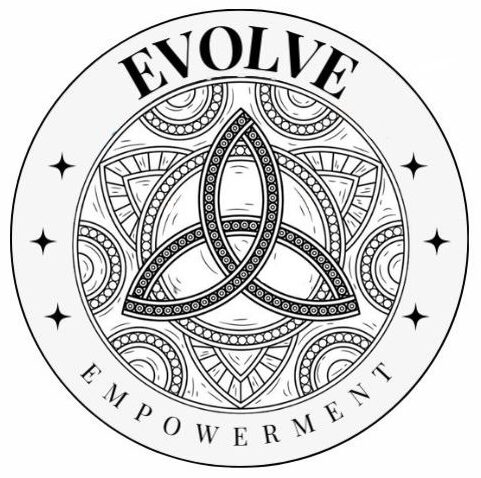In a world brimming with distractions, the ability to channel energy through intentional focus emerges as a critical skill for achieving both personal and professional aspirations.
The Momentum Machine is not a physical device but a conceptual framework—a set of practices and principles that enable individuals to harness their mental energy and direct it purposefully toward meaningful goals.
This exploration delves into the foundation of intentional focus, techniques for building momentum, strategies for managing energy, and the transformative potential of focused attention.
The Foundation of Intentional Focus. Understanding Its Power.
Defining Intentional Focus and Its Significance.
Intentional focus is the deliberate act of directing one’s mental energy and attention toward a specific objective while minimizing distractions. Unlike passive attention, which reacts to stimuli, intentional focus involves conscious choice and sustained effort.
It is the cornerstone of productivity, enabling individuals to work efficiently and achieve greater clarity in decision-making.
Whether pursuing a career goal, learning a new skill, or fostering relationships, intentional focus provides the structure needed to navigate challenges with resilience.
The Science Behind Focus.
Focus is a neurological process regulated by the brain’s prefrontal cortex, the region responsible for planning, decision-making, and moderating social behavior.
Neuroscientific studies reveal that attention is inherently limited—our brains can only process a finite amount of information at a time.
Sustaining focus requires the activation of the brain’s reward system, which motivates us to stay engaged by releasing dopamine.
Moreover, techniques like mindfulness and deep work leverage the brain’s plasticity, reinforcing neural pathways that enhance our ability to concentrate over time.
Real-Life Examples of Intentional Focus.
History offers inspiring examples of individuals who achieved extraordinary results through focused energy.
Consider Nikola Tesla, whose ability to immerse himself in deep thought led to groundbreaking innovations in electricity.
Similarly, athletes like Serena Williams attribute their success to intentional focus, mastering their craft through disciplined routines and unwavering attention to detail.
These stories demonstrate that focus is not merely an innate trait but a cultivated skill.

Building Your Own Momentum Machine. Techniques and Strategies.
Enhancing Concentration and Reducing Distractions
The modern environment bombards us with notifications, demands, and competing priorities. To counteract this, creating a distraction-free workspace is essential.
Techniques such as the Pomodoro Technique—working in focused intervals with short breaks—have proven effective.
Setting clear priorities and breaking larger tasks into manageable chunks also help sustain concentration.
Mindfulness and Meditation as Tools for Focus.
Mindfulness practices, such as meditation, train the mind to observe thoughts without judgment, cultivating a state of heightened awareness.
Studies show that even a few minutes of daily mindfulness practice can improve attention span and reduce stress.
Guided meditations, apps like Headspace, or simple breathing exercises can integrate mindfulness into daily routines, sharpening focus over time.
The Role of Habit Stacking and Routines.
Habits and routines play a pivotal role in building what can be described as a “momentum machine. Habit stacking—linking a new habit to an existing one—creates a seamless integration of productive behaviors.
For instance, pairing morning coffee with a planning session or listening to an educational podcast during a commute ensures that actions align with long-term goals.
Energy Management. Maintaining the Drive and Efficacy.
Understanding Energy Cycles and Their Impact on Focus.
Our bodies operate on ultradian rhythms—natural cycles of energy lasting 90–120 minutes. Understanding these cycles allows individuals to align high-focus tasks with peak energy levels and reserve less demanding activities for periods of lower energy.
Tracking energy patterns over a few days can reveal optimal times for deep work.
Techniques to Recharge and Maximize Productivity.
Sustained focus requires regular recharging. Short breaks, particularly those involving physical movement or exposure to nature, rejuvenate the mind.
Nutrition also plays a critical role; balanced meals rich in proteins, healthy fats, and complex carbohydrates provide steady energy.
Adequate hydration and quality sleep are non-negotiable for maintaining cognitive function.
Balancing Work and Rest.
Burnout is a common consequence of relentless focus without adequate recovery. Establishing boundaries, such as designated work hours and tech-free evenings, ensures a balance between productivity and rest.
Practices like active recovery—engaging in low-intensity activities such as yoga or leisurely walks—further promote well-being.

Harnessing Focus for Personal Growth and Collective Success.
The Ripple Effect of Focused Energy.
When individuals channel their focus effectively, it creates a ripple effect that extends to teams, organizations, and communities.
Focused individuals inspire collaboration, improve team performance, and drive innovation. In the corporate world, leaders who model intentional focus set a standard, cultivating a culture of efficiency and purpose.
Leveraging Focus for Learning and Creativity.
Intentional focus accelerates skill acquisition and deepens understanding. By dedicating undistracted time to deliberate practice, individuals can achieve mastery in their chosen fields. Furthermore, focus unlocks creativity by allowing the mind to explore ideas deeply, connecting disparate concepts in novel ways.
Practical Success Stories.
Businesses and leaders often attribute their achievements to the power of intentional focus.
For instance, Elon Musk’s intense focus on solving complex engineering problems has propelled Tesla and SpaceX to unprecedented heights.
Similarly, companies like Google encourage employees to dedicate “focus time” for innovation, yielding transformative products and solutions.
Conclusion.
The Momentum Machine is a metaphorical engine driven by intentional focus, energy management, and consistent effort.
By understanding the science of attention, implementing strategies to build and sustain focus, and aligning efforts with energy cycles, individuals can harness their potential to achieve personal and collective success.
In a noisy world, the ability to channel energy intentionally is not just an advantage—it is a necessity for thriving in both the present and the future.

